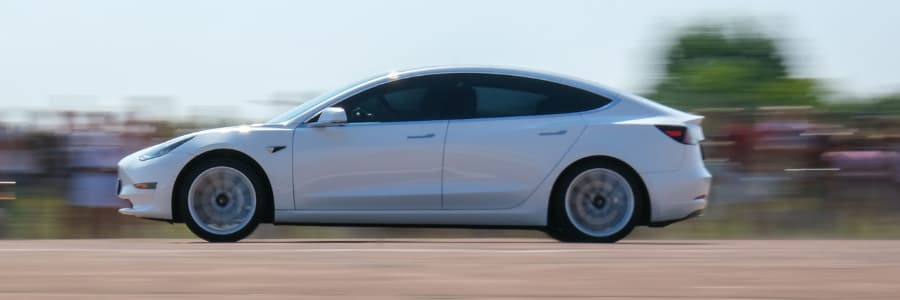A Tesla strapped to a SpaceX rocket is a good image of how Scandinavian electric vehicle (EV) sales have performed over the last few years.
EV sales in Scandinavia have passed the 50% mark, with more than half of all new cars sold in a month being electric vehicles, in several places.
The speed of EV growth creates challenges and opportunities for companies like energy companies and vehicle fleet managers, calling for innovation at speed.
In September 2023, electric cars and plug-in hybrid sales equaled 51% of all new car sales in Denmark. This has occurred just twice before – in December 2021 and 2022. However, plug-in hybrid sales boosted by impending tax jumps were the main contributors both times. This time, fully electric cars accounted for 43% of car sales.
After record year after record year, Denmark now has over 200,000 electric cars. In 2023, fully electric vehicles accounted for 36%.
The Swedish market share for electric cars is also seeing strong performance. It was 42.7% in September 2023, compared to 33.5% in the same month the year before. EVs have performed stably at around 40% of new sales throughout 2023.
The number of EVs in Sweden has passed 300,000 registered electric cars, increasing by 65% between 2022 and 2023.
December 2022 almost reached 50% of new car sales and has been stable at around 40% throughout 2023.

Previously, Finland lagged behind its Scandinavian brother countries where the switch to electric cars is concerned. However, 2023 has been a break-out year.
In September 2023, 3,000 new electric cars were registered in Finland, compared to 2,700 petrol cars. According to a forecast by Finland’s Automotive Information Centre, fully electric vehicles will account for 42% of first-registered passenger cars by 2025 and almost 70% five years later.
There are none above Norway where EV sales are concerned. And that is on a global level.
Norway saw EV car sales overtake petrol cars in 2020, and they haven’t looked back.
The most recent numbers show that more than 80% of new registered cars are EVs. 16.3% are hybrids. Many large car companies, including VW, have stopped selling petrol cars in Norway.
The point of the statistics is not to drown you in numbers. Instead, we hope it illustrates the speed of EV growth and that Scandinavian countries find themselves on a trajectory similar to Norway’s – just a few years behind.
As John Dyrby Paulsen, director of Danish e-Mobility, put it when the Danish EV sales passed 50%:
“Electric vehicles keep getting cheaper and better. A majority of buyers see the electric car as the natural choice.”
This is not only a Scandinavian phenomenon but a global one.
The developments have knock-on effects throughout societies, leading to new challenges and opportunities for companies like fleet managers and utilities.
To start with the opportunities. For the energy sector, including visionary companies and grid developers, the surge in EVs opens doors to innovative smart grid technologies and the use of EVs as dynamic energy storage solutions. Utilities can explore new business models with inventive tariff structures and smart charging initiatives. For fleet managers, the shift to EVs promises lower operational costs, enhanced brand image through sustainable practices, and the potential to leverage government incentives.
EVs can also present challenges for the likes of the energy industry and fleet managers. Utilities must grapple with the increased demand for electricity, requiring upgrades to the grid infrastructure to ensure stability and manage peak load times. This surge in EV usage necessitates the development of more robust and widespread charging networks, posing logistical and planning challenges. Fleet managers, on the other hand, must navigate the complexities of integrating EVs into their fleets, which includes investing in charging infrastructure, managing charging vehicle times, and addressing range anxiety. Additionally, both utilities and fleet managers need to stay abreast of evolving technologies and regulations in the rapidly changing EV landscape.
As the EV landscape in Scandinavia continues to evolve, rapidly grasping new opportunities means acting fast or risk falling behind competitors.
Embracing this electric revolution means adapting to changing demands, investing in sustainable technologies, and driving towards a more efficient, environmentally conscious future. The question remains: how swiftly and effectively can we adapt to this rapidly changing landscape?
To be able to answer that question, companies must first find out how they can innovate at speed to grasp the opportunities and navigate the challenges. EV sales in Scandinavia are trending, which you can follow on this page.